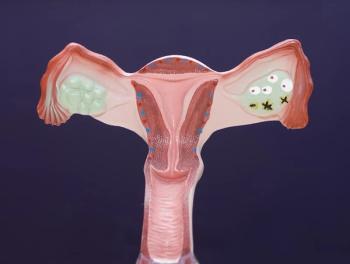
Miami Breast Cancer Conference® Abstracts Supplement
- 40th Annual Miami Breast Cancer Conference® - Abstracts
- Volume 37
- Issue suppl 4
- Pages: 34-35
50 Pooled Exploratory Analysis of Survival in Patients (pts) With HR+/ HER2− Advanced Breast Cancer (ABC) and Visceral Metastases (mets) Treated With Ribociclib (RIB) + Endocrine Therapy (ET) in the MONALEESA (ML) Trials
Background
Visceral metastases in patients with hormone receptor– positive/human epidermal growth factor–negative (HR+/ HER2–) advanced breast cancer (ABC) indicate a more aggressive cancer that shows less treatment benefit and shorter time to disease progression, with particularly poor survival in those with liver metastases or multiple metastatic sites. The 3 phase 3 MONALEESA (ML) trials have demonstrated statistically significant progression-free survival (PFS) and overall survival (OS) benefits of ribociclib (RIB) + endocrine therapy (ET) in patients with HR+/ HER2− ABC. The median PFS (mPFS) and median OS (mOS) benefit of RIB + ET over placebo (PBO) + ET in patients with visceral metastases (and in those with liver metastases) was previously demonstrated in both the ML-3 and ML-7 trials. Here we present a large pooled PFS and OS analysis in patients with visceral metastases, with a focus on those with liver metastases or multiple metastatic sites, in the overall and first-line (1L) populations of the ML-2, -3, and -7 trials.
Materials and Methods
ML-2 and ML-3 included postmenopausal women while ML-7 included premenopausal women. In this exploratory analysis, mPFS and mOS were evaluated using Kaplan-Meier methods in a pooled dataset of patients with (1) visceral metastases, (2) liver metastases, and (3) visceral metastases with ≥3 metastatic sites (of any type) from the 3 trials; the same analyses were conducted in the 1L population separately. For this analysis, 1L patients were defined as those with de novo disease (no prior exposure to ET) and those with relapse >12 months from the end of (neo)adjuvant ET (late relapse); patients with relapse ≤12 months from the end of (neo) adjuvant ET (early relapse) were excluded from this subgroup definition as they behave more like second-line (2L) patients; data from the 2L patient population were not analyzed separately.
Results
A significant PFS and OS benefit were observed with RIB in pts with visceral mets, among which were pts with liver mets or ≥3 met disease sites across the pooled population of 1L/2L. This significant benefit persisted in the 1L subgroup, including in the subgroups of pts with a worse prognosis, such as those with liver mets or ≥3 met sites who achieved a median OS of ≈4-5 y with RIB. No new safety signals, including liver enzyme elevations, even in pts with baseline liver mets, were observed.
Conclusions
This large, pooled analysis of the ML trials confirms the consistent survival benefit of RIB + ET in pts with visceral mets who historically have a poor prognosis. This analysis also demonstrates the substantial benefit of RIB in those with poorer outcomes within the visceral mets subgroup—ie, pts with liver mets and those with multiple met disease sites, especially in the 1L population.
AFFILIATIONS:
Denise A. Yardley,1 Yoon Sim Yap,2 Hamdy Abdel Azim,3 Richard De Boer,4 Mario Campone,5 Alistair Ring,6 Michelino De Laurentiis,7 Joyce O’Shaughnessy,8 Javier Cortes,9 Yogesh Chattar,10 Astrid Thuerigen,11 Juan Pablo Zarate,12 Liz Santarsiero12
1Sarah Cannon Research Institute, Tennessee Oncology, Nashville, TN.
2National Cancer Centre Singapore, Singapore.
3Cairo University, Cairo, Egypt.
4Peter MacCallum Cancer Centre, Victoria, Australia.
5Institut de Cancérologie de l’Ouest / René Gauducheau Centre de Recherche en Cancérologie, St Herblain, France.
6Royal Marsden Hospital NHS Foundation Trust, Surrey, UK.
7Istituto Nazionale Tumori – IRCCS, Fondazione Pascale, Naples, Italy.
8Texas Oncology/Baylor University Medical Center, Dallas, TX.
9International Breast Cancer Center (IBCC), Grupo Quiron, Madrid and Barcelona, Spain.
10Novartis Healthcare Private Limited, Hyderabad, Telangana, India.
11Novartis Pharma AG, Basel, Switzerland.
12Novartis Pharmaceuticals Corporation, East Hanover, NJ.
Articles in this issue
Newsletter
Stay up to date on recent advances in the multidisciplinary approach to cancer.




































